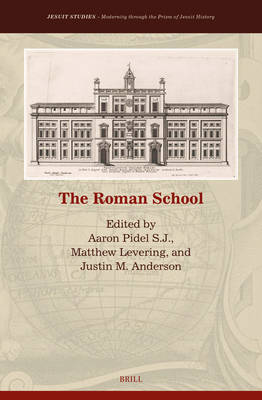
- Afhalen na 1 uur in een winkel met voorraad
- Gratis thuislevering in België vanaf € 30
- Ruim aanbod met 7 miljoen producten
- Afhalen na 1 uur in een winkel met voorraad
- Gratis thuislevering in België vanaf € 30
- Ruim aanbod met 7 miljoen producten
Zoeken
Omschrijving
Did the twentieth-century patristic renewal come from nowhere? Was all nineteenth-century theology neo-scholastic? Do theologians' personal failings invalidate their theologies? These are the questions that guide the contributors to this volume as they reassess the legacy of the so-called Roman School, a nineteenth-century theological network centered in the Jesuit Roman College. Though not entirely uncritical, The Roman College represents a collective effort at sympathetic historical retrieval. It shows how various figures connected to the Roman School--Perrone, Passaglia, Schrader, Franzelin, Newman, Scheeben, and Kleutgen--engaged theologically the problems of their own day and set the stage for later theological renewal.
Specificaties
Betrokkenen
- Uitgeverij:
Inhoud
- Aantal bladzijden:
- 300
- Taal:
- Engels
- Reeks:
- Reeksnummer:
- nr. 43
Eigenschappen
- Productcode (EAN):
- 9789004548589
- Verschijningsdatum:
- 28/03/2024
- Uitvoering:
- Hardcover
- Formaat:
- Genaaid
- Afmetingen:
- 162 mm x 241 mm
- Gewicht:
- 576 g

Alleen bij Standaard Boekhandel
+ 406 punten op je klantenkaart van Standaard Boekhandel
Beoordelingen
We publiceren alleen reviews die voldoen aan de voorwaarden voor reviews. Bekijk onze voorwaarden voor reviews.







